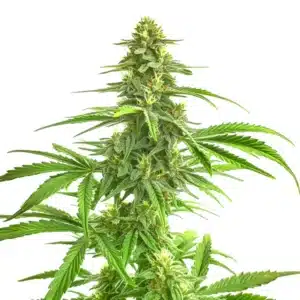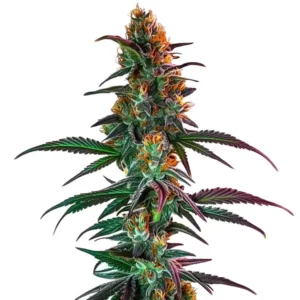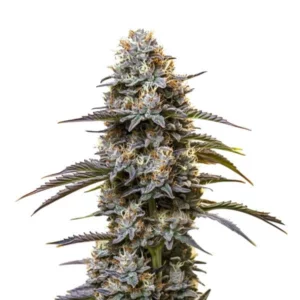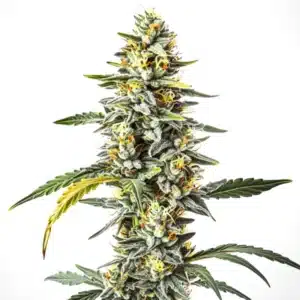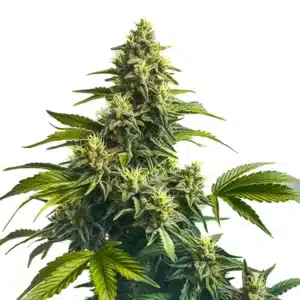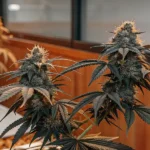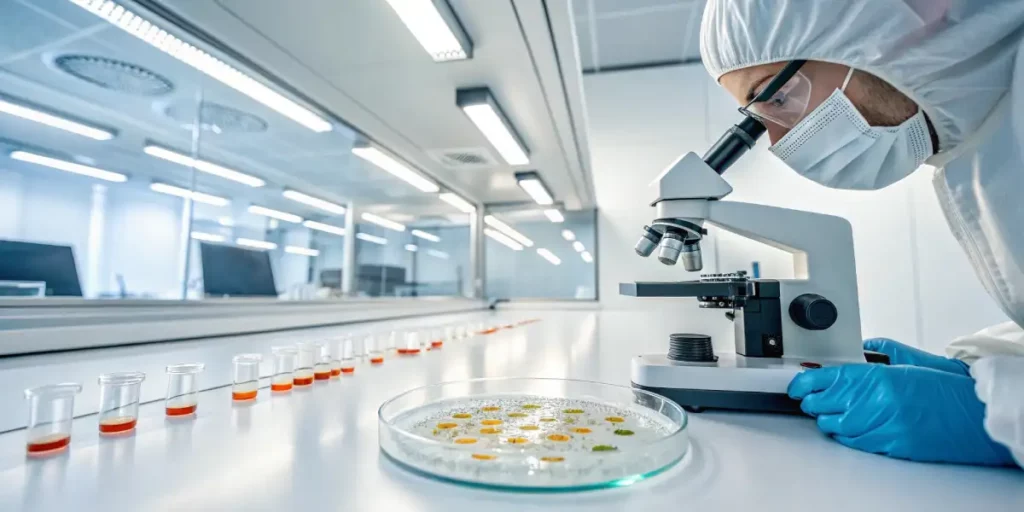
What Are Flavonoids and What Do They Do?
Flavonoids are unique compounds found in numerous plants, fruits, and vegetables, including cannabis. These naturally occurring compounds play a significant role in contributing to the color, flavor, and health properties of these plants. In cannabis, they make up about 10% of the known compounds and are responsible for the non-green colors, such as the red, blue, or purple hues in some strains.
Beyond their plant-based roles, flavonoids have a more significant role in human health. They act as potent antioxidants, providing a variety of health benefits by interacting with various biological systems in our bodies.
Recommended Strains
Health Benefits of Flavonoids in Diet
Flavonoids are praised for their diverse health benefits. They are potent antioxidants, meaning they help protect our bodies from free radicals and reduce inflammation. Consuming flavonoids can help to enhance cardiovascular health by lowering blood pressure and bad cholesterol. They also play a crucial role in boosting our immune system and can improve our skin health by preventing premature aging.
Promos & Deals
The Role of Flavonoids in Disease Prevention
Flavonoids are also involved in preventing various diseases. Studies have shown that they can help protect against certain types of cancer and may help manage neurodegenerative diseases, like Alzheimer’s and Parkinson’s. Moreover, flavonoids can assist in managing diabetes by improving blood sugar control and insulin sensitivity. They also have antimicrobial properties and have been implicated in the prevention of osteoporosis and age-related eye diseases.
Natural Sources of Flavonoids and Their Effects
Flavonoids are abundant in many foods we consume daily, including fruits, vegetables, dark chocolate, and tea. Cannabis is also a rich source of these powerful compounds. For example, the cannabis strain Wombat from Blimburn Seeds is known for its high flavonoid content, which provides a unique flavor and aroma.

Knowing What Flavonoids Do in the Body
Once consumed, flavonoids interact with our body in several ways. They can aid in digestion, help fight off harmful organisms, and play a role in cell cycle regulation. Flavonoids also interact with our body’s endocannabinoid system, helping to maintain homeostasis. They influence the function of various hormones and enzymes, impacting everything from mood to metabolic processes, and can also modulate the body’s immune response.
How Flavonoids are Preserved in Cannabis: The Role of the Grower
While cannabis plants are a rich source of flavonoids, their presence in the final product you consume is not guaranteed. The preservation of these delicate compounds depends almost entirely on the skill of the cultivator during the post-harvest process.
The drying and curing phase is essential for maintaining the flavonoids and terpenes in the buds. If the flowers are dried too quickly after harvesting, they can lose their valuable flavonoids almost immediately. A slow and patient curing process is what allows these compounds to be preserved and fully expressed.
To experience the maximum potential, time is a key ingredient. Cannabis flowers typically do not reach their peak expression of both terpenes and flavonoids until they have been properly cured for about 3 months after harvest.

FAQs Section
What Are Flavonoids and What Do They Do?
Flavonoids are naturally occurring compounds in plants, including cannabis, that contribute to their color, flavor, and health properties. In the human body, they act as powerful antioxidants that reduce inflammation and support overall health, from the cardiovascular system to disease prevention.
What Are the Health Benefits of Flavonoids in Diet?
Including flavonoids in your diet offers numerous benefits. As potent antioxidants, they help protect the body from damage, promote heart health, boost the immune system, and can even enhance skin health and aid in weight management.
What is the Impact of Flavonoids in Disease Prevention?
Flavonoids may play a crucial role in preventing chronic diseases. Research suggests they can help protect against certain types of cancer, neurodegenerative diseases (like Alzheimer’s), diabetes, and age-related conditions like osteoporosis.
What Do Flavonoids Do in the Body?
Once consumed, flavonoids interact with many of the body’s systems. They aid in digestion, regulate cell cycles, modulate the immune response, and interact with the endocannabinoid system to help maintain internal balance (homeostasis).
What Are Some Natural Sources of Flavonoids?
Flavonoids are abundant in many common foods. Excellent sources include most fruits and vegetables (especially berries and leafy greens), dark chocolate, tea (green and black), and red wine. Cannabis is also a particularly rich and diverse source of these compounds.


